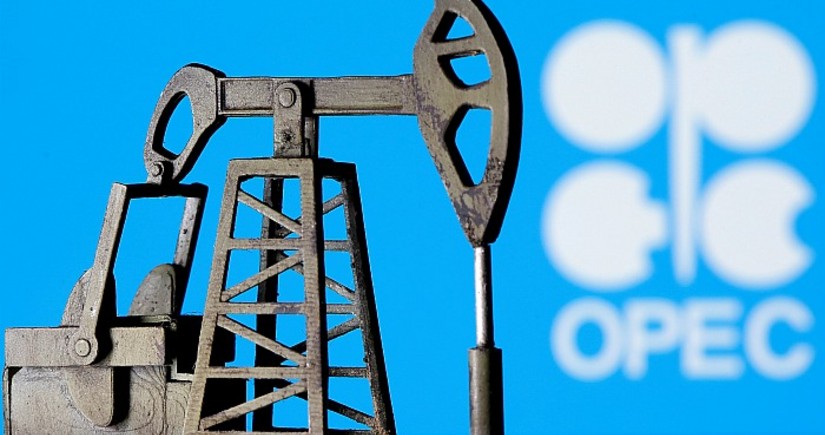Oil market turmoil: How US tariffs and OPEC+ moves are changing the game
- 10 April, 2025
- 11:11

Several key factors continue to impact global oil and gas markets, particularly oil prices — including both market and non-market influences.
Speaking to Report, Vyacheslav Mishchenko, an oil and gas expert and head of GLENMAR Group, emphasized the significant role of recent geopolitical events, including sanctions, tariffs, and customs duties.
According to Mishchenko, these issues were especially pronounced during the administration of Donald Trump, who imposed tariffs on imports from 183 countries — targeting not only rivals but also key US allies and partners.
"This was presented as a measure to protect the American market from 'unfair' foreign trade. Trump expects these tariffs to generate $6–7 trillion for the US budget by the end of the year," said Mishchenko. "But the result was market instability. China responded harshly, and countries in the Euro-Atlantic coalition — like the UK, Canada, and Australia — reacted with mixed signals."
He added that Canada, in particular, responded strongly to Washington’s actions — especially following Trump’s controversial comment that Canada could become "the 51st U.S. state."
Mishchenko highlighted that this “new U.S. trade strategy” has significantly impacted global economic ties — including the oil market.
He added that Canada, in particular, responded strongly to Washington's actions — especially following Trump's controversial comment that Canada could become "the 51st US state."
Mishchenko highlighted that this "new US trade strategy" has significantly impacted global economic ties — including the oil market.
"In the context of escalating trade tensions and OPEC+'s decision to gradually increase oil production from April 2025, we're seeing the current market situation. The move by OPEC+ boosted oil supply amid a backdrop of trade uncertainty, ultimately leading to a drop in oil prices and increased market volatility," he said. "Just last Friday, April 4, oil prices plunged by more than 7% — falling below the price level seen in 2021."
He warned that the market shows no signs of stabilizing. If the current US economic policy continues and OPEC+ maintains its output increases, oil prices may keep falling.
"The market is currently anticipating further declines, and forecasts remain pessimistic. Industry experts believe that if nothing changes, oil prices will keep dropping due to increased OPEC+ supply and the ongoing global trade war instigated by the US administration," Mishchenko stated. "We can also expect retaliatory actions against the United States from other nations."
He noted that the US is currently acting unilaterally, and global market responses have varied.
"This reaction won’t be immediate, but it's already affecting global trade — especially flows of essential commodities like hydrocarbons. The oil market is highly sensitive to changes driven by restrictions and uncertainty. There are also supply concerns, like the potential for Canada to limit exports to the US, or pressure on Venezuela and Iran — all of which impact the market," he explained.
Still, Mishchenko believes there's potential for a shift in the current market trend.
"If conflict in the Middle East intensifies or expands," he said, "oil prices could rise again."
He also noted that if restrictions were placed on the Strait of Hormuz, the Caspian region could become a more strategic supply route — increasing demand for oil from Azerbaijan, Kazakhstan, Iran, and Turkmenistan. The primary markets for these supplies remain European countries, which receive the oil via transit routes through Georgia and Türkiye.
According to Mishchenko, current market pressure is largely due to US tariff policy and rising OPEC+ output. However, he believes these are temporary factors and the situation could stabilize.
"If other countries, aside from China, respond more mildly to the tariffs, and if OPEC+ output doesn't cause significant disruptions, the market may maintain stability," he said.
Mishchenko noted that, overall, the global supply-demand balance remains steady: "Despite differing forecasts, I believe demand for oil will continue to grow, and the additional volumes from OPEC+ will be absorbed by the market. In that case, rising demand could offset the effects of increased supply."
He also doesn’t rule out a rebound in prices: “An $80 per barrel mark looks achievable in the coming months.”
Crucial issues regarding oil trade, logistics, and regional cooperation will be discussed on April 24–25 in Baku at the upcoming Oil Trade and Transport Forum: Caspian and Central Asia.
The event will serve as a platform to set regional priorities, strengthen existing partnerships, and establish new connections between companies involved in oil and petroleum product trade.
